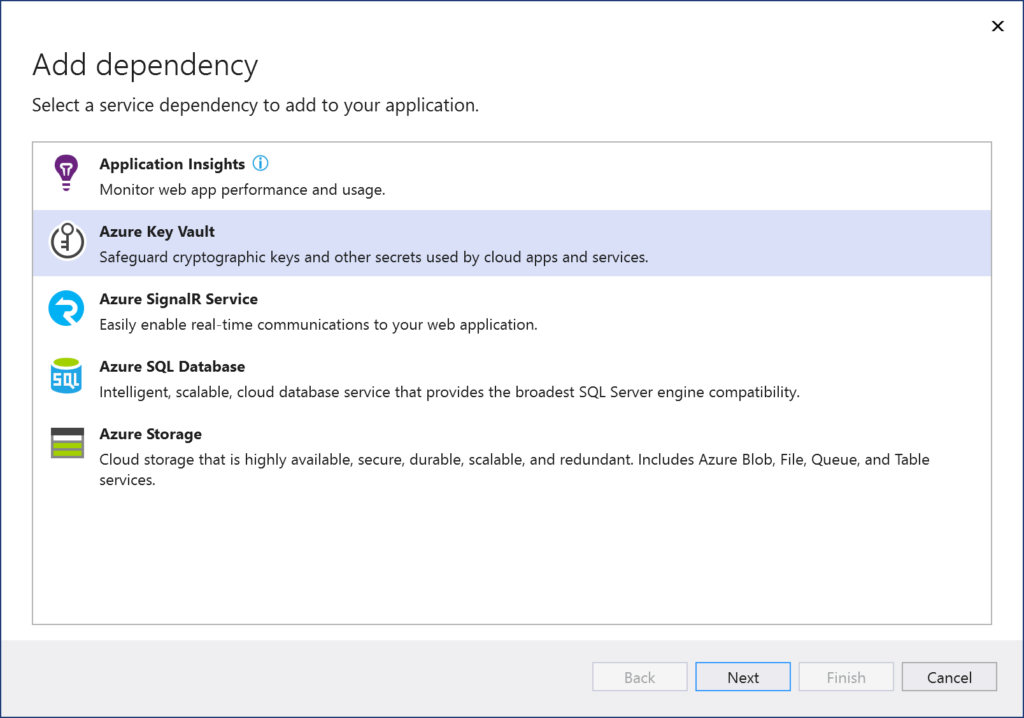

$adapp = New-AzureRmADApplication -DisplayName “Your Web Application” -HomePage $URL -IdentifierUris $URL -CertValue $credValue -StartDate $x509.NotBefore -EndDate $x509.NotAfter $credValue = ::ToBase64String($x509.GetRawCertData()) $x509 = New-Object 509Certificates.X509Certificate2 To check to Navigate to your Automation account, then in the left navigation click on Modules and search for the modules.

However, in order to retrieve keys and secrets from Azure Key Vault, you need to authorize a user or application with Azure Key Vault, which in its turn needs another credential.
KEYVAULT VALIDATOR 2017 CODE
$Cert = New-SelfSignedCertificate -DnsName $DNSName -CertStoreLocation “cert:\$StoreLocation\My” -NotBefore $CertBeginDate -NotAfter $CertExpiryDate -KeySpec SignatureĮxport-PfxCertificate -cert $Cert -FilePath $PFXFilePath -Password $SecStringPwĮxport-Certificate -cert $Cert -FilePath $CerFilePath Step 1: Check if the following Modules are available in the Azure Runbook. Azure Key Vault avoids the need to store keys and secrets in application code or source control. Support for provisioning storage clusters via the fs cluster command Support for NFS (single VM, scale up) Support for GlusterFS (multi VM. $SecStringPw = ConvertTo-SecureString -String $Password -Force -AsPlainText DEBUG: 08:42:52: 911fa572-b9a3-4924-83d3-2e60f81cd54b - TokenCache: An item matching the requested resource was found in the cache. KeyVault client not initialized in fs contexts (57) Check pool current node count prior to executing pool udi task (58) Initialization with KeyVault uri on commandline (59) 2.6.0b1 - Added. (get-azurekeyvaultsecret -vaultName $KeyVault -name “SQLPassword”).SecretValueText

$Secret = Set-AzureKeyVaultSecret -VaultName $KeyVault -Name ‘SQLPassword’ -SecretValue $SecretValue $SecretValue = ConvertTo-SecureString $Password -AsPlainText -Force New-AzureRmKeyVault -Name $KeyVault -ResourceGroupName $ResourceGroup -Location $location $CertExpiryDate = $CertBeginDate.AddYears(1) $CerFilePath = ‘C:\Certificates\YourCertificate.cer’
KEYVAULT VALIDATOR 2017 REGISTRATION
Associate Certificate to App Registration.Right-click on your certificate, select All Tasks / Manage Private Keys: You now will see all accounts that can access the private key of. Following PowerShell Script will perform the following: First open the mmc tool by typing mmc in the search box: Expand the tree on the left side ( Certificates (Local Computer) / Personal / Certificates ), select the Certificates node and locate your certificate.


 0 kommentar(er)
0 kommentar(er)
